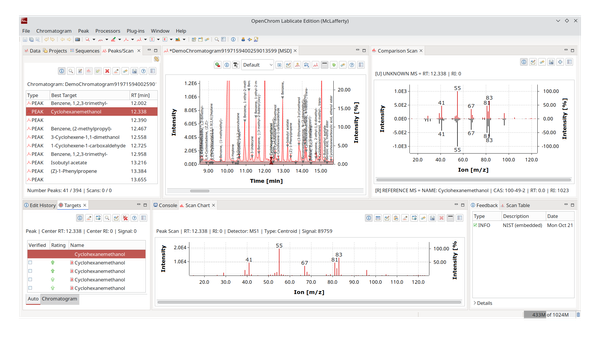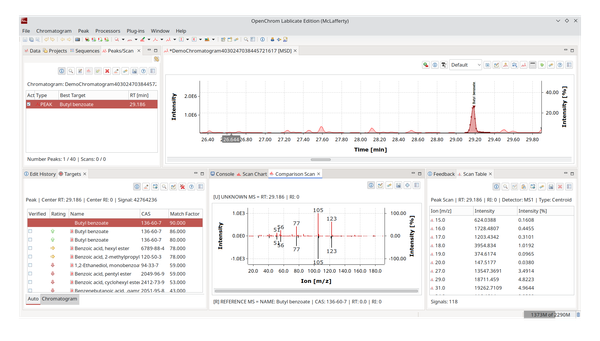OpenChrom Allotrope Plugins

Lablicate has been an early member of the Allotrope Partner Network (APN) because we believe that open standards in analytical chemistry are important, in fact, more important than ever before.
If you want retrievable data in your company or in science, it cannot be saved in vendor-specific formats. You still want to be able to open them in 30 years when systems have changed. They should be searchable. Your data scientists may want to use them for machine learning, where unstructured input can lead to disappointing results.
This is where the Allotrope Foundation Ontologies (AFO) kicks in.
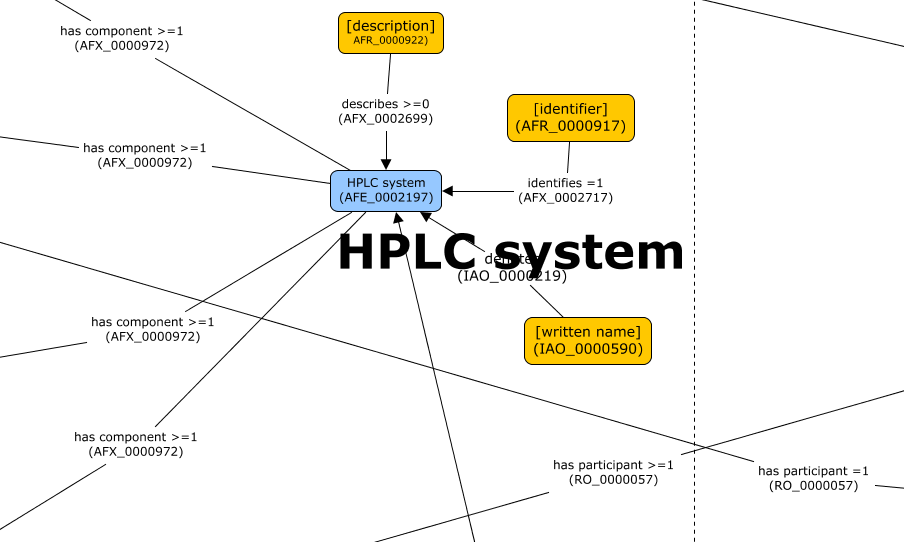
Such data structures are often displayed as a directed graph because it is made up of nodes that are connected to each other, basically like a mind map. How they are connected and the description of the nodes stems from the ontology which acts as a dictionary to describe instruments, workflows and finally data with precise definitions independent of manufacturer.
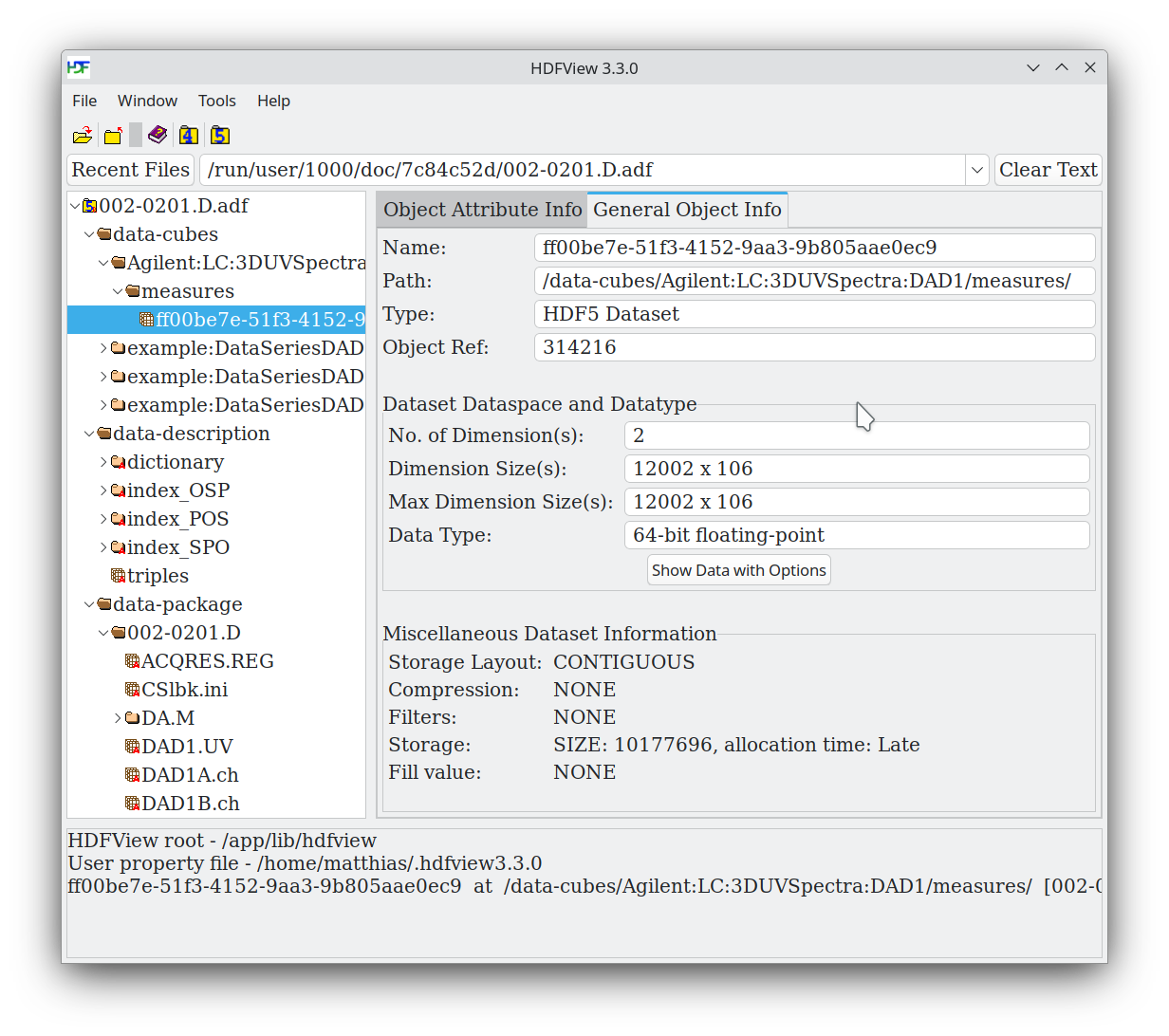
The Allotrope Data Format (ADF) based on the Hierarchical Data Format (HDF) is a container format for analytical data including a data description using the ontology as described above. It is an efficient binary format like most proprietary vendor formats but self-describing in nature. However, it also comes with a price. It requires special tooling to work with and is not the easiest to use.
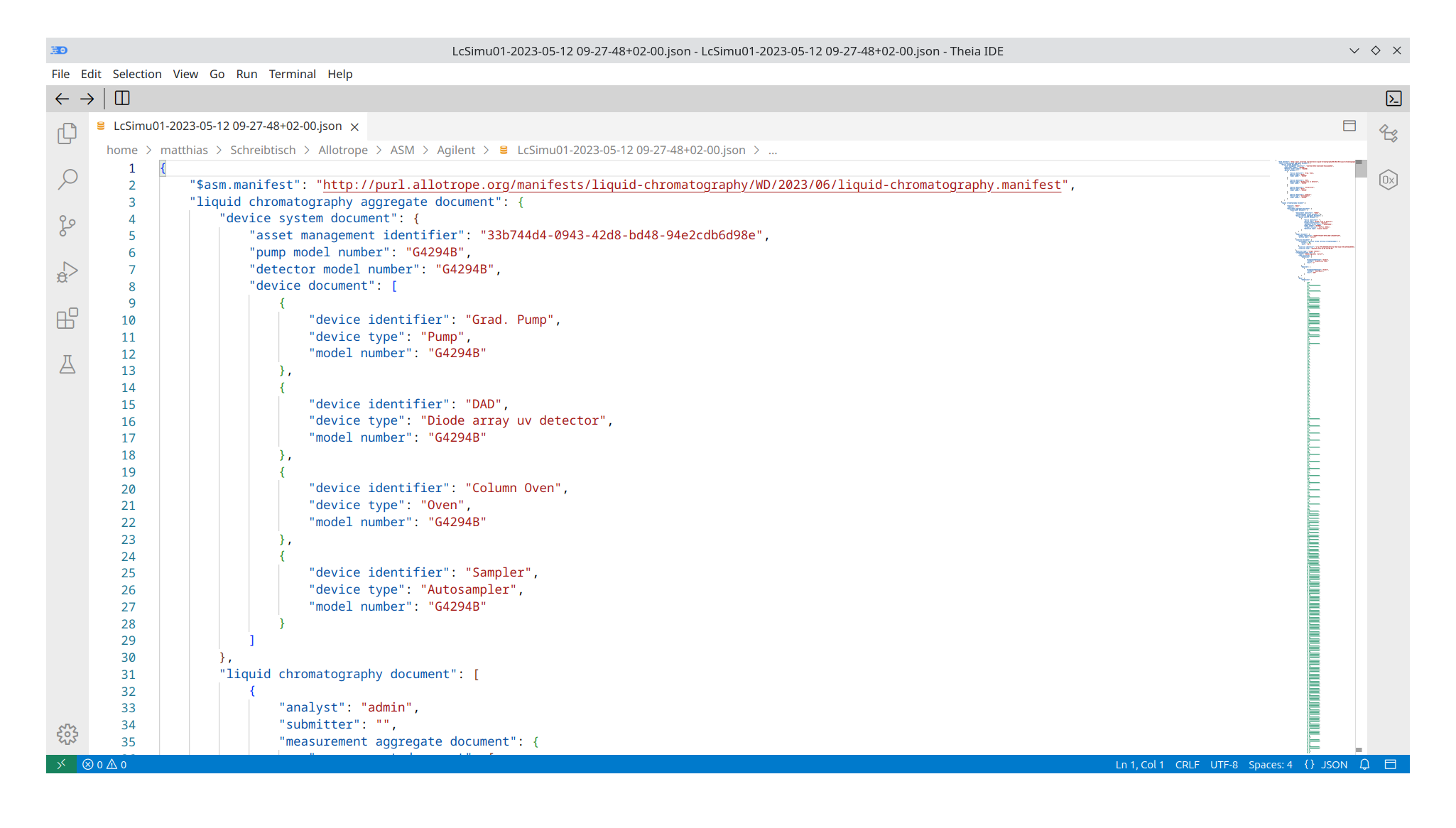
The Allotrope Simple Model (ASM) is a compromise between both worlds. It is based on the same ontology but puts it into the flat structure of a JSON file, which is text in nature and can be viewed with any editor. JSON is a file format most developers are already comfortable with. File size can be large, but it can be compressed effectively for data transfer.
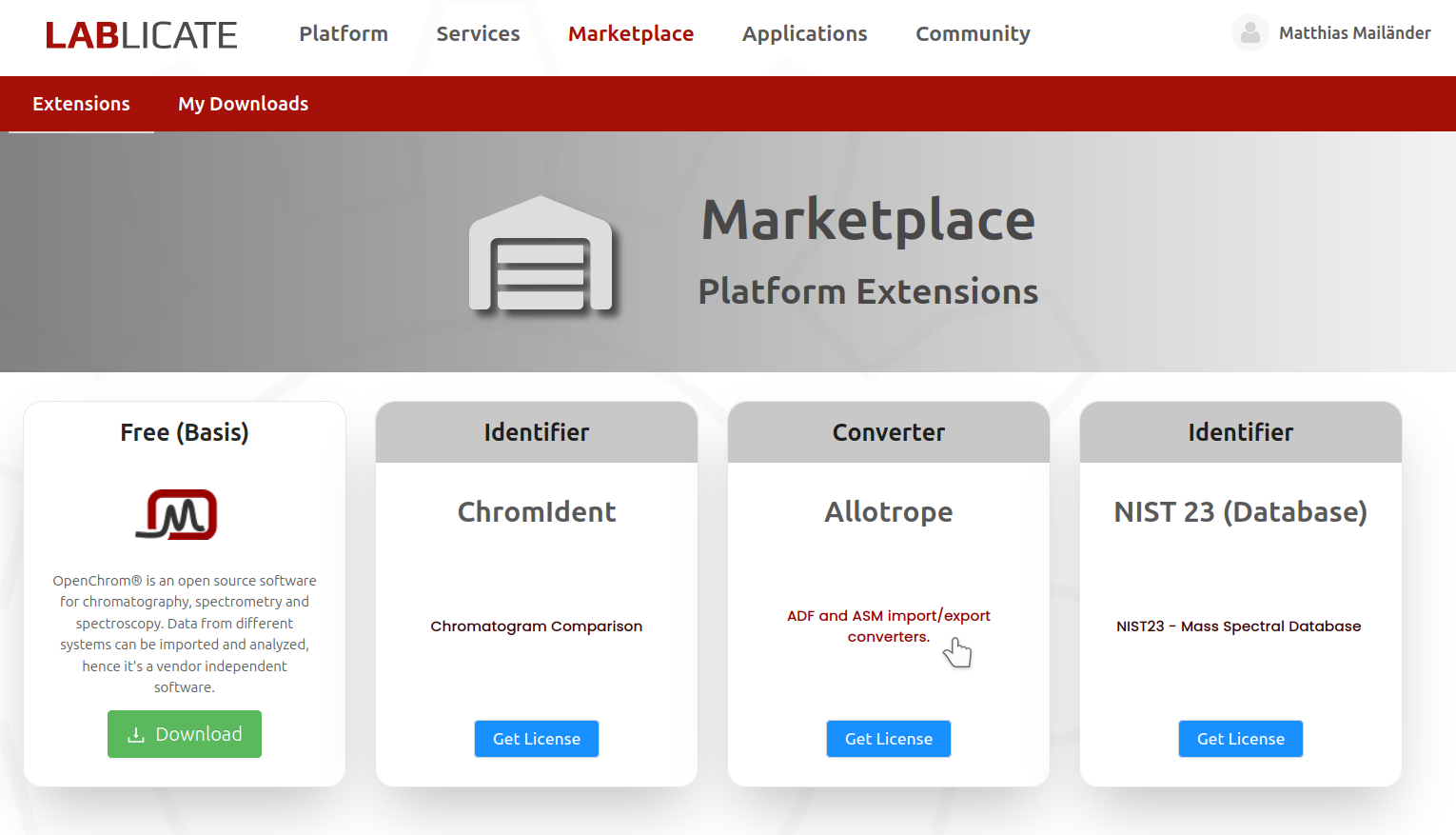
While this might sound compelling from a technical point of view, there is always the hen and egg problem with open standards. Nobody is using it because there is no software that supports it. Vendors won't adopt it, until there is widespread use. That is why we developed an Allotrope Plugin for OpenChrom, which supports both ADF and ASM to break this cycle. Students in academia can request a completely free version if they register with an institutional e-Mail address and want to use proper file formats in publications.

You don't have to wait for adoption and compatibility is no longer your problem, but ours. Convert from/into Allotrope formats and all of our supported vendor formats, including other open standards like mzML or AnIML.

At the same time, you can open up an ADF and work with it like working on any other raw data format in the OpenChrom data analytics platform. You can also expand it and look into the data package and compare the peak picked version with instrument raw data files at any time.

Never search for files during audits anymore. It is right at your fingertips. OpenChrom will also never temper with your raw data. We always archive processed data in separate files.
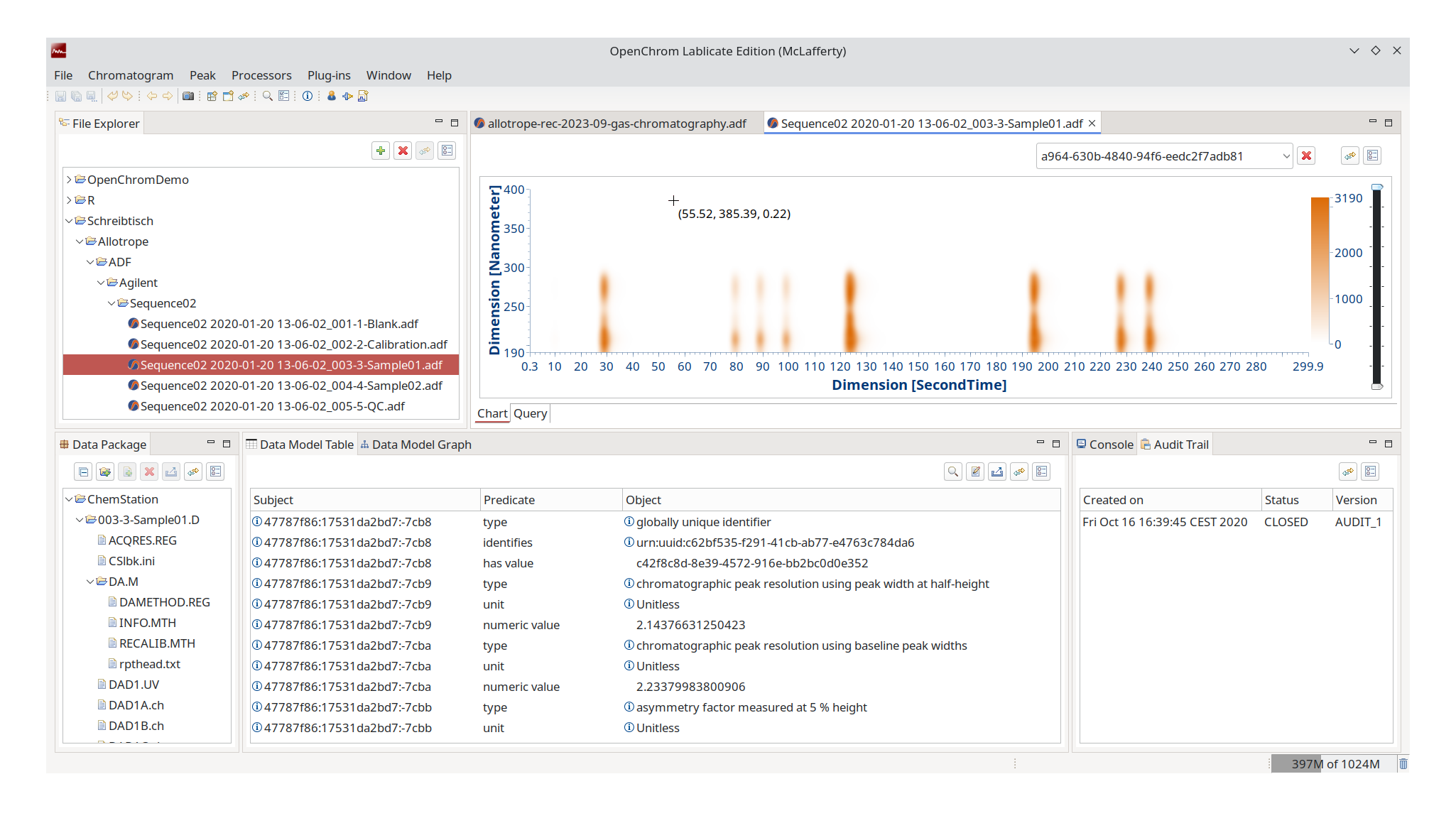
During development, we figured that we need tooling to get a better understanding ourselves, so we created a generic editor that can read any ADF file even if we don't support the analytical technique yet. It displays the data, including multi-dimension ones. The data description is displayed in tabular and graph form. You can also inspect the audit log that is built into the format.

You can export and edit the original instrument raw data from the ADF data package and then open it up with any other software that does not support ADF natively.

While the table is perfect for searching and retrieving data, try the graph to get an overview and inspect how data is related to each other.

The ontology is encoded with prefixes and numeric values. You can conveniently inspect them in OpenChrom and by clicking on a node to get the official Allotrope documentation.

The Allotrope data format was designed with data science in mind. You can do SPARQL queries on your data and query them similar to how you would do on a database. In this example, we query for the peak table that is inside the data description.

ADF is not just about chromatography, and so is OpenChrom. We can also read in Fourier-transform infrared (FT-IR) spectroscopy data.

Standalone mass spectrometry with a focus on Matrix-assisted Laser Desorption/Ionization (MALDI) is also supported.

From the domain of molecular biology, we support real-time quantitative PCR (qPCR) that you can export into ASM...

... and read back in from ASM.
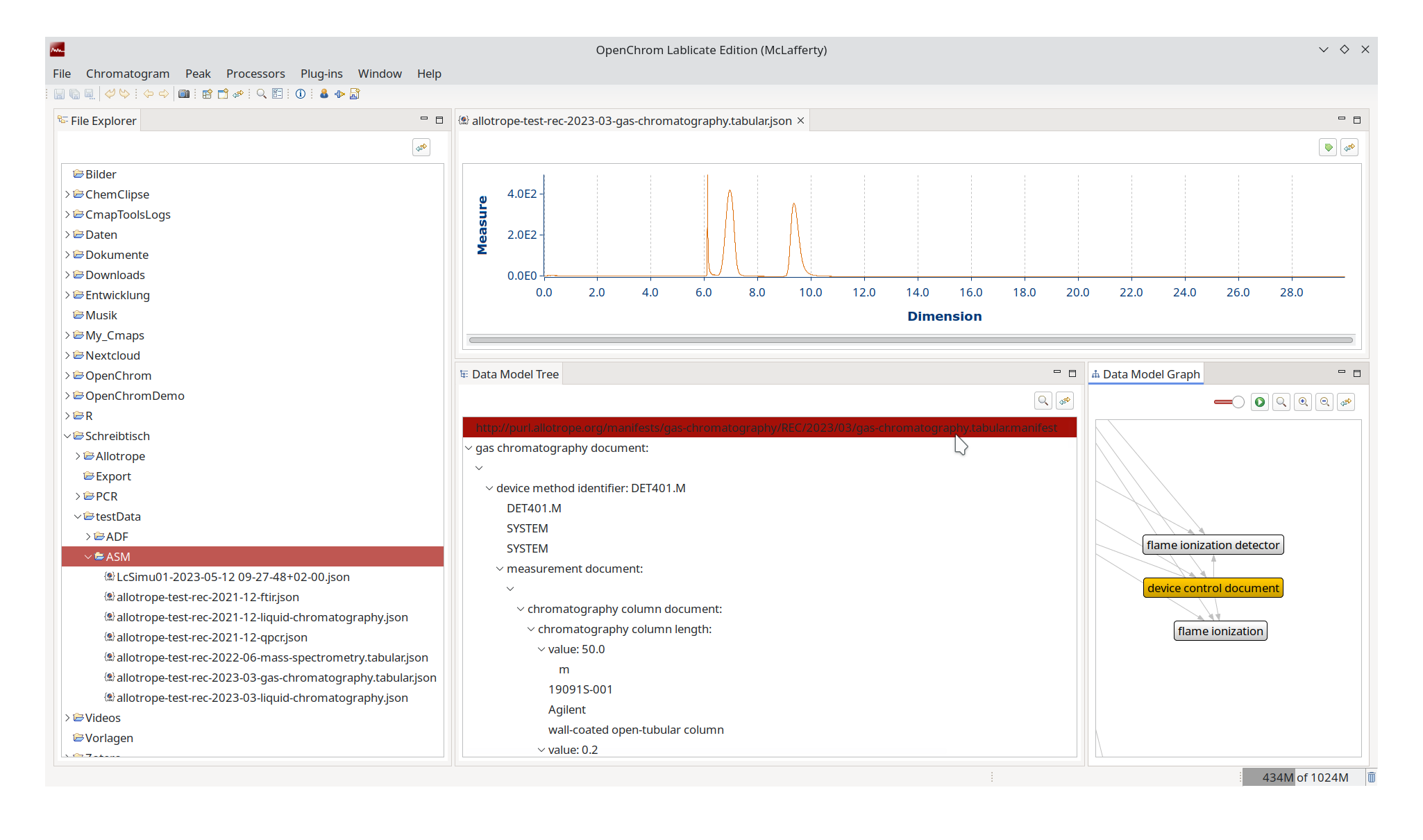
As ASM is getting more popular, we also created a generic viewer for it as well. It plots the graph as well as displays the data model as a tree and also a graph.
Please contact us if you have further questions regarding Allotrope Foundation data formats in OpenChrom.

